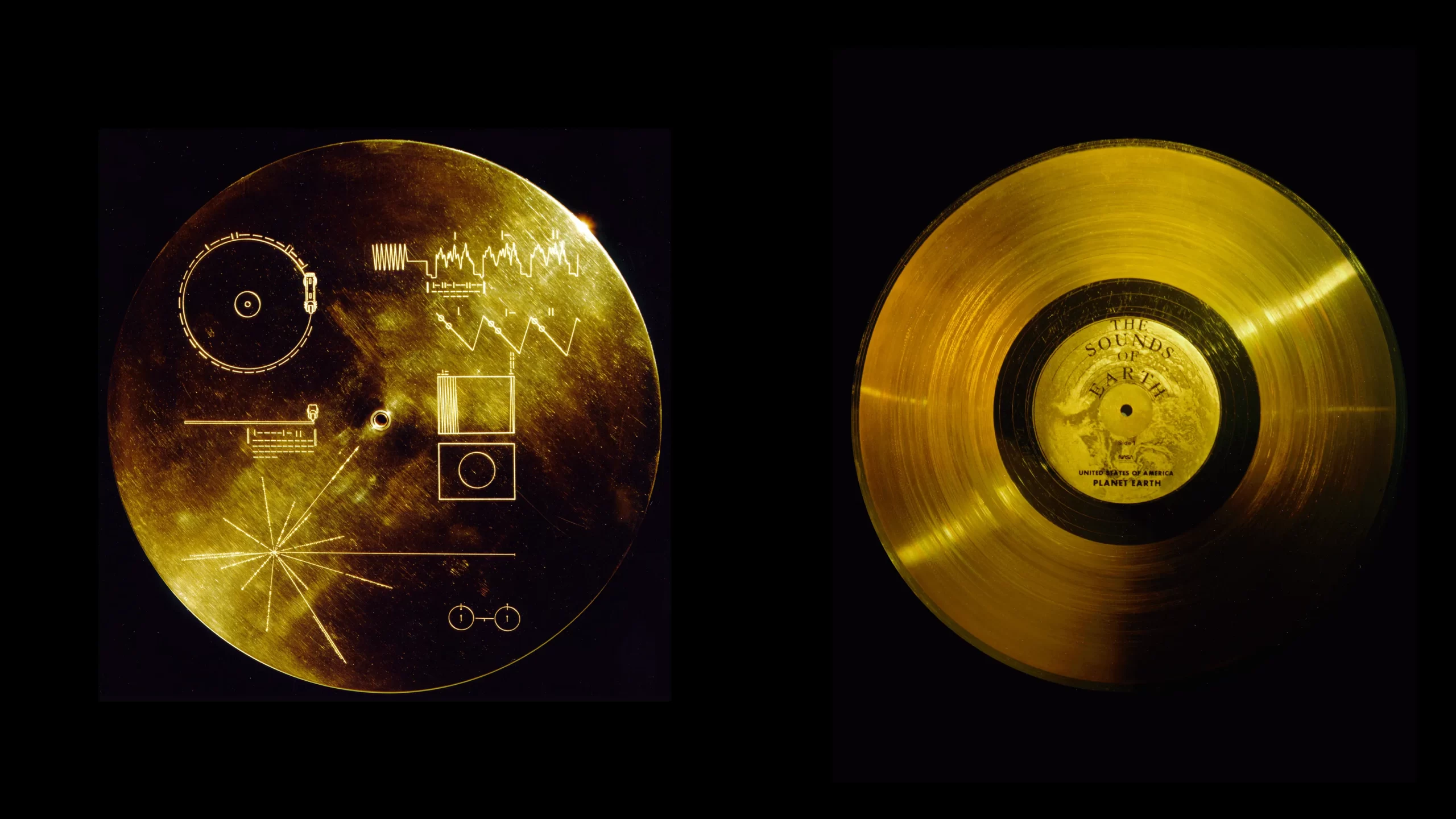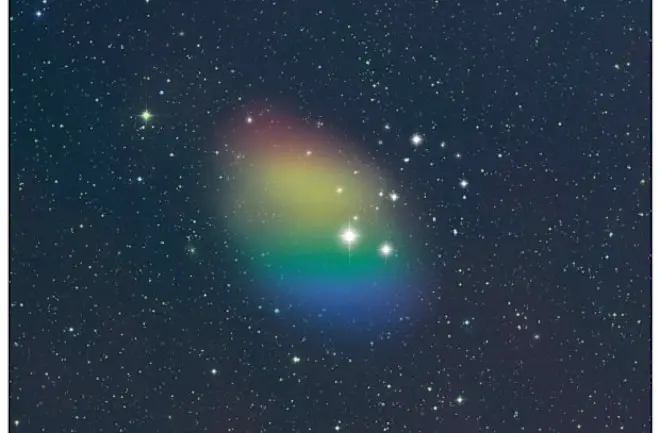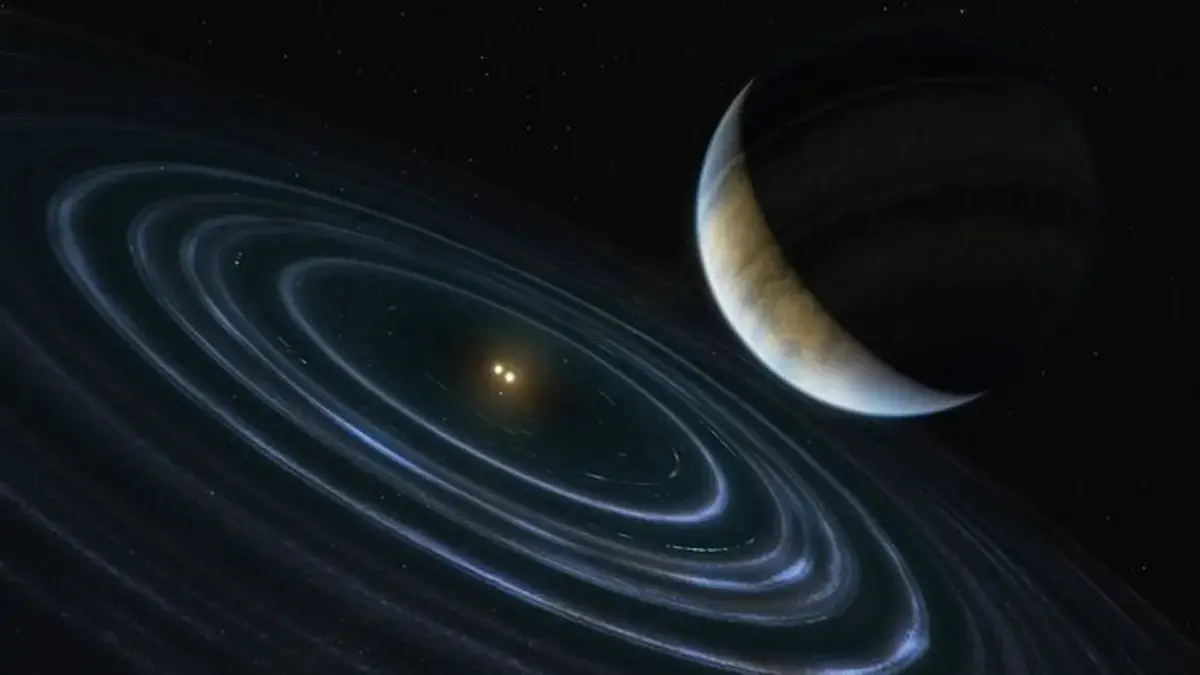A golden phonograph record was attached to each of the Voyager spacecraft that were launched almost 47 years ago. One of the purposes was to send a message to extraterrestrials who might find the spacecraft as the spacecraft journeyed through interstellar space. In addition to pictures and music and sounds from earth, greetings in 55 languages were included.
NASA asked Dr Carl Sagan of Cornell University to assemble a greeting and gave him the freedom to choose the format and what would be included. Because of the launch schedule, Sagan (and those he got to help him) was not given a lot of time. Linda Salzman Sagan was given the task of assembling the greetings.
The story behind the creation of the “interstellar message” is chronicled in the book, “Murmurs of Earth”, by Carl Sagan, et al. Unfortunately, not much information is given about the individual speakers. Many of the speakers were from Cornell University and the surrounding communities. They were given no instructions on what to say other than that it was to be a greeting to possible extraterrestrials and that it must be brief. The following is an excerpt by Linda Salzman Sagan from the book:
“During the entire Voyager project, all decisions were based on the assumption that there were two audiences for whom the message was being prepared – those of us who inhabit Earth and those who exist on the planets of distant stars.
“We were principally concerned with the needs of people on Earth during this section of the recording. We recorded messages from populations all over the globe, each representative speaking in the language of his or her people, instead of sending greetings in one or two languages accompanied by keys for their decipherment. We were aware that the latter alternative might have given the extraterrestrials a better chance of understanding the words precisely, though it would have raised the thorny question of which two languages to send. We felt it was fitting that Voyager greet the universe as a representative of one community, albeit a complex one consisting of many parts. At least the fact that many different languages are represented should be clear from the very existence of a set of short statements separated by pauses and from internal evidence – such as the initial greeting “Namaste,” which begins many of the greetings from the Indian subcontinent. The greetings are an aural Gestalt, in which each culture is a contributing voice in the choir. After all, by sending a spaceship out of our solar system, we are making an effort to de-provincialize, to rise above our nationalistic interests and join a commonwealth of space-faring societies, if one exists.
“We made a special effort to record those languages spoken by the vast majority of the world’s inhabitants. Since all research and technical work on the record had to be accomplished within a period of weeks, we began with a list of the world’s most widely spoken languages, which was provided by Dr. Steven Soter of Cornell. Carl suggested that we record the twenty-five most widely spoken languages. If we were able to accomplish that, and still had time, we would then try to include as many other languages as we could.
“The organization of recording sessions and the arduous legwork involved in finding, contacting and convincing individual speakers was handled by Shirley Arden, Carl’s executive assistant, Wendy Gradison, then Carl’s editorial assistant, Dr. Steven Soter, and me. The master table, reproduced on pages 134 through 143, which shows each of the languages, the speaker’s name, their comments in the original language, an English translation, and the real and fractional number of human beings who speak that language, was largely Shirley’s idea. We contacted various members of the Cornell language departments, who cooperated with us on very short notice and provided numerous speakers, even though school was ending and many people were leaving for summer vacations. Other speakers were more difficult to find. sometimes it meant sitting for hours, telephoning friends of friends who might know someone who could speak, let’s say, the Chinese Wu dialect. After finding such a person, we had to determine whether he or she would be available during the hours when the recording sessions had been scheduled. Even while the recording sessions were going on, we were still trying to find and recruit speakers of languages not yet represented. Often people waiting to record would suggest names of individuals fluent in the very languages we were looking for. Immediately we called those people, explained the project and our plight, and asked them to come at once. Many people did just that.
“Bishun Khare, a senior physicist in the Laboratory for Planetary Studies, was responsible almost singlehandedly for the participation of the Indian speakers. He personally called friends and member of the Cornell Indian community, explaining the undertaking to them and asked for and received their cooperation.
“There were only a few disappointments, where someone had agreed to come to a recording session, could not and forgot to let us know in time for us to make other arrangements. It wasn’t always possible to find replacements at the last minute, so there are some regrettable omissions – Swahili is one.”
All the greetings, written in the appropriate language, translated to English, and with the name of the speakers, are included in the book. A CD-ROM, which accompanied the 1992 version of the book, included the spoken versions.
|
Akkadian
|
“May all be very well.”
|
|
Amoy (Min dialect)
|
“Friends from space, how are you all? Have you eaten yet? Come visit us if you have time.”?
|
|
Arabic
|
“Greetings to our friends in the stars. We wish that we will meet you someday.”
|
|
Aramaic
|
“Peace”
|
|
Armenian
|
“To all those who exist in the universe, greetings.”
|
|
Bengali
|
“Hello! Let there be peace everywhere.”
|
|
Burmese
|
“Are you well?”
|
|
Cantonese
|
“Hi. How are you? Wish you peace, health and happiness.”
|
|
Czech
|
“Dear Friends, we wish you the best.”
|
|
Dutch
|
Dear/sincere greetings to everyone
|
|
English
|
“Hello from the children of planet Earth.”
|
|
French
|
“Hello everybody.”
|
|
German
|
“Heartfelt greetings to all.”
|
|
Greek
|
“Greetings to you, whoever you are. We come in friendship to those who are friends.”
|
|
Gujarati
|
“Greetings from a human being of the Earth. Please contact.”
|
|
Hebrew
|
“Peace.”
|
|
Hindi
|
“Greetings from the inhabitants of this world.”
|
|
Hittite
|
“Hail.”
|
|
Hungarian (Magyar)
|
“We are sending greetings in the Hungarian language to all peace-loving beings in the Universe.”
|
|
Ila (Zambia)
|
“We wish all of you well.”
|
|
Indonesian
|
“Good night, ladies and gentlemen. Goodbye and see you next time.”
|
|
Italian
|
“Many greetings and wishes.”
|
|
Japanese
|
“Hello? How are you?”
|
|
Kannada (Kanarese)
|
“Greetings. On behalf of Kannada-speaking people, ‘good wishes.'”
|
|
Kechua (Quechua)
|
“Hello to everybody from this Earth, in Kechua language.”
|
|
Korean
|
“How are you?”
|
|
Latin
|
“Greetings to you, whoever you are; we have good will towards you and bring peace across space.”
|
|
Luganda (Ganda)
|
“Greetings to all peoples of the universe. God give you peace always.”
|
|
Mandarin Chinese
|
“Hope everyone’s well. We are thinking about you all. Please come here to visit when you have time.”
|
|
Marathi
|
“Greetings. The people of the Earth send their good wishes.”
|
|
Nepali
|
“Wishing you a peaceful future from the earthlings.”
|
|
Nguni (Zulu)
|
“We greet you, great ones. We wish you longevity.”
|
|
Nyanja
|
“How are all you people of other planets?”
|
|
Oriya
|
“Greetings to the inhabitants of the universe from the third planet Earth of the star Sun.”
|
|
Persian
|
“Greetings to the residents of far skies.”
|
|
Polish
|
“Welcome, creatures from beyond the outer world.”
|
|
Portuguese
|
“Peace and happiness to all.”
|
|
Punjabi
|
“Welcome home. It is a pleasure to receive you.”
|
|
Rajasthani
|
“Hello to everyone. We are happy here and you be happy there.”
|
|
Romanian
|
“Greetings to everybody.”
|
|
Russian
|
“Greetings! I Welcome You!”
|
|
Serbian
|
“We wish you everything good from our planet.”
|
|
Sinhalese
|
“Wish You a Long Life.”
|
|
Sotho (Sesotho)
|
“We greet you, O great ones.”
|
|
Spanish
|
“Hello and greetings to all.”
|
|
Sumerian
|
“May all be well.”
|
|
Swedish
|
“Greetings from a computer programmer in the little university town of Ithaca on the planet Earth”
|
|
Telugu
|
“Greetings. Best wishes from Telugu-speaking people.”
|
|
Thai
|
“We in this world send you our good will”
|
|
Turkish
|
“Dear Turkish-speaking friends, may the honors of the morning be upon your heads.”
|
|
Ukrainian
|
“We are sending greetings from our world, wishing you happiness, goodness, good health and many years.”
|
|
Urdu
|
“Peace on you. We the inhabitants of this earth send our greetings to you.”
|
|
Vietnamese
|
“Sincerely send you our friendly greetings.”
|
|
Welsh
|
“Good health to you now and forever.”
|
|
Wu
|
“Best wishes to you all.”
|



